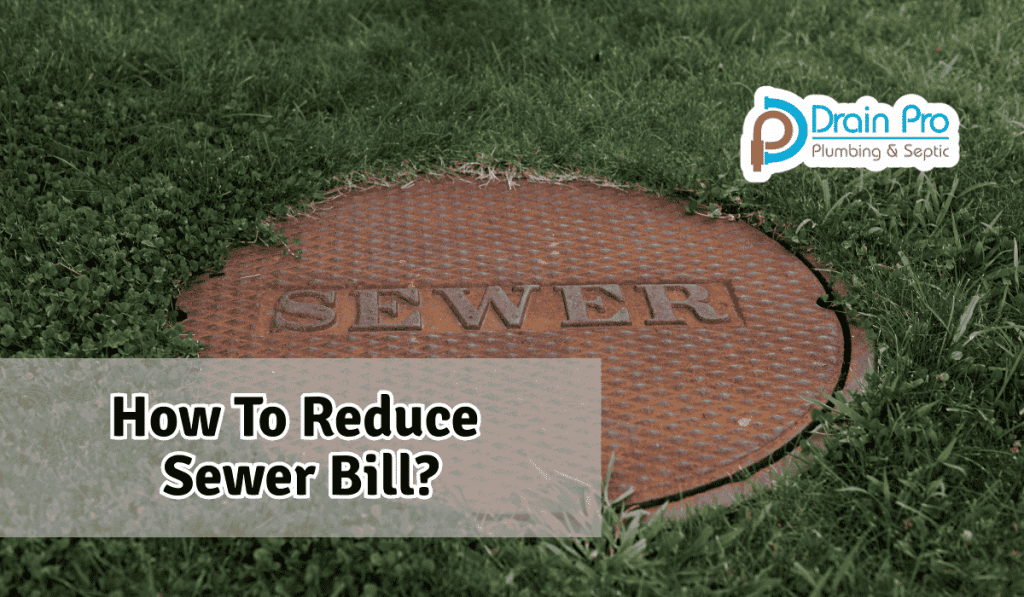
How To Reduce Sewer Bill? 12 Smart Tips for Washington Homeowners
As a homeowner in Washington, you’re always looking for ways to save money, and one expense that can sneak up on you is your sewer bill. Sewer charges are based on water usage, so the more water you use, the higher your bill will be. But don’t worry; there are plenty of ways to cut down your sewer costs without sacrificing comfort. In this blog post, we’ll explore effective strategies to help you reduce your sewer bill, conserve water, and be more efficient with your household sewer system. If you’ve been wondering how to reduce sewer bill costs, these tips can help you get started right away.
Understanding How Sewer Bills Work in Washington
Before you can lower your bill, it helps to know how your sewer charges are calculated. In most Washington cities, sewer bills are tied to your water meter readings. The amount of water you use directly impacts how much water enters the sewer system, and utility billing is based on this usage. In many areas, your winter water usage sets the rate for the rest of the year.
- Fixed base rate: Covers your access to the sewer service and maintenance of infrastructure
- Volume charge: Based on how much water you use and send down the drain
- Stormwater or drainage fees: Some cities like Seattle add stormwater charges to your sewer service bills to manage runoff
Understanding how your utility bills are structured helps you identify where you can use less water and save money.
1. Fix Leaks and Drips Right Away
One of the most common and easily overlooked culprits of high utility bills is leaks. A leaking faucet or running toilet might seem like small problems, but over time, they can add up. A dripping faucet can waste as much as 3,000 gallons of water a year, and a running toilet can waste up to 200 gallons of water per day.
Tip: Regularly check your faucets, pipes, and toilets for leaks. If you notice any, repair them promptly to prevent unnecessary water wastage. Investing in professional plumbing services to fix leaks can lower your water and sewer charges significantly.
2. Install Water-Efficient Fixtures
Upgrading your plumbing fixtures to water-efficient models is a great way to lower both your water and sewer bills. Low-flow showerheads, faucets, and dual-flush toilets are designed to use less water while still providing the same level of comfort and functionality.
Tip: Install a low-flow showerhead, which uses up to 50% less water than traditional models, or replace old toilets with modern, water-efficient models. These small upgrades can have a significant impact on your utility billing and reduce strain on your sewer system.
3. Monitor Water Usage With Smart Water Meters
One of the best ways to control your sewer bill is by actively monitoring your water usage. Many local water departments in Washington offer water meters that can track how much water you’re using throughout the month. Some even offer smart meters that provide real-time data via a mobile app, making it easier to identify patterns and adjust your behavior.
Tip: If your utility provider offers a smart water meter, consider having it installed. With these meters, you can track your usage, find out if there are any spikes in your water consumption, and identify areas where you can use less water to save on sewer charges. Homeowners who track their usage often find it’s the simplest step in learning how to reduce sewer bill amounts effectively.
4. Optimize Laundry and Dishwashing Habits
The washing machine and dishwasher are two of the biggest water consumers in your home. While washing clothes and dishes is necessary, there are ways to optimize how you do it to minimize water waste.
Tip: Always wash full loads, use the correct water level settings, and choose energy-efficient appliances. High-efficiency washers use 35%–50% less water, which helps reduce both your water bill and sewer bill. Washing with cold water also reduces energy use and strain on your sewer system.
5. Water Your Garden More Efficiently
Outdoor watering is a hidden contributor to high sewer bills in Washington. Although outdoor water doesn’t enter the sewer system, many utilities still bill it as if it does.
Tip: Water your lawn and garden in the early morning or late evening to minimize evaporation. Install a drip irrigation system to deliver water directly to plant roots. This method uses less water and can reduce your usage charges over time.
6. Use a Water Softener if You Have Hard Water
If you live in an area with hard water, you may experience mineral buildup in your pipes and appliances. Over time, this buildup can reduce the efficiency of your plumbing, leading to more water usage and higher sewer charges.
Tip: Have a professional plumber install a water softener in your home if you have hard water. This will help conserve water, prolong the life of your plumbing system, and reduce long-term utility bills tied to your sewer service.
7. Limit Garbage Disposal Use
While garbage disposals are convenient, they can be a significant drain on your water usage. Running the disposal requires water to flush waste through the system, which can add up over time.
Tip: Compost food scraps instead of using the garbage disposal, or use it sparingly. This small change can reduce both your water usage and your sewer bill, while easing the load on the sewer system.
8. Schedule Routine Drain Cleaning
Over time, waste buildup in your pipes can lead to slow drainage or blockages. When this happens, water has to flow at a slower rate, which can affect your water usage efficiency.
Tip: Schedule a professional drain cleaning service once a year to ensure that your pipes are clear and running efficiently. A well-maintained plumbing system ensures you’re not wasting water due to clogs or slow drainage.
9. Capture Rainwater to Reduce Water Usage
Rainwater harvesting is becoming popular among Washington homeowners looking for how to reduce sewer bill costs. If your city allows it, you can collect rainwater for watering gardens and lawns, reducing your reliance on the municipal water system.
Tip: Install rain barrels or a full rainwater collection system. This not only saves water but also cuts down on the amount of metered water that contributes to your sewer charges.
10. Build Water-Saving Daily Habits
Small daily changes can lead to significant savings on your utility bills over time. This is one of the easiest ways to use less water and lower your sewer charges.
Tip: Turn off the tap while brushing your teeth, take shorter showers, and only run the dishwasher when it’s full. Educate your family on why it’s important to conserve water and reduce what goes into your sewer system. People aiming to learn how to reduce sewer bill expenses often start with these small habit changes.
11. Check for Utility Billing Errors
Sometimes, unexpectedly high sewer bills are caused by incorrect readings or billing mistakes. This is more common than most homeowners realize.
Tip: Review your utility billing statements closely. Compare your water meter readings to what’s listed on your bill. If you see a sudden spike in charges without an increase in use, contact your local utility department to have your water meter checked.
12. Consider Installing a Greywater Recycling System
Greywater systems collect lightly used water from showers, tubs, and laundry to reuse for landscape irrigation or toilet flushing. This can drastically cut down the amount of water entering the sewer system.
Tip: If allowed by your city’s plumbing codes, a licensed plumber can install a greywater system to help you reduce your overall sewer service charges and save on water costs long term.
Contact Drain Pro Plumbing & Septic
If you’re trying to figure out how to reduce sewer bill costs at your home, our team is ready to help. At Drain Pro Plumbing & Septic, we specialize in water conservation strategies and sewer system maintenance across Washington.
Why Choose Us
- Locally trusted by homeowners across King and Pierce Counties
- Experts in leak detection, drain cleaning, fixture upgrades, and efficient system design
- Transparent pricing, fast response, and licensed plumbers- # DRAINPP797RH
Our Services
- Leak repairs, drain cleaning, pipe inspections
- Installation of water-efficient fixtures, water softeners, and smart water meters
- Preventive maintenance to keep your plumbing and sewer system running at peak efficiency
Service Areas
We proudly serve Seattle, Bellevue, Kent, Tacoma, Renton, Federal Way, Kirkland, Redmond, Auburn, and surrounding cities throughout Washington.
Contact us today at (206) 765-0105 to schedule a plumbing inspection or consultation and start lowering your utility bills with a more efficient plumbing and sewer system. With expert help, you can finally master how to reduce sewer bill costs and keep your home’s plumbing in top shape.


